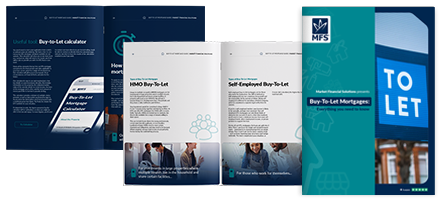Disclaimer
Market Financial Solutions are a bridging loan and buy-to-let mortgage provider, not financial advisors. Therefore, Investors are encouraged to seek professional advice. The information in this content is correct at time of writing.
Many property investors and homeowners will likely be thinking “is a tracker mortgage a good idea now?” in the current market. Interest rate movements have dominated the financial headlines since the base rate started rising substantially from late 2022 onwards.
Following nearly 15 years of near-zero rates, when investors probably got used to low borrowing costs, seeing rates top 5%[1] was likely a rude awakening. While the base rate now sits at a relatively normal level by historical standards, it hasn’t stopped many from forecasting (or hoping for) a drop.
This is a challenging endeavour. On seemingly a weekly basis, commentators and pundits publicly declare that the base rate is bound to go up, or down at the next vote. More often than not, they get it wrong[2].
Nevertheless, Andrew Bailey, the governor of the Bank of England has hinted that interest rate cuts could be on the way in recent weeks[3]. This makes the question of is a tracker mortgage a good idea now more nuanced.
What are tracker mortgages and how do they work?
Before addressing the question of is a tracker mortgage a good idea now, we should define exactly what it is they are. In a nutshell, a tracker mortgage is a type of variable rate product that tracks base rate movements.
So, when the base rate rises, so too will tracker rates. But, when the base rate falls, tracker mortgage owners will see their costs lower.
Tracker mortgages don’t follow the base rate like-for-like, however. Lenders add a set percentage to their trackers, which may be 1%[4] or more. If the base rate was 5%, the amount of interest a borrower might pay with a tracker mortgage would be 6%, for example.
Generally, tracker mortgage terms may sit between one and five years, although it’s possible to come across open-ended lifetime trackers[5]. Also, while trackers can go up or down, they can generally be more cost-effective than standard variable rate (SVR) mortgages[6].
Tracker mortgages vs fixed mortgages
Whether a borrower should go for a tracker or fixed mortgage will depend on their circumstances, and priorities. Also, their foresight with interest rates will also play a crucial role. If they’re able to get their timing right, tracker mortgage applicants could benefit from significant savings if the base rate drops.
Others may instead value peace of mind. Locking in a fixed deal for a few years may be painful should rates fall afterward. But, these borrowers will at least know exactly what they’ll be repaying over the coming two, three, or five years. There will be no chance of a nasty rise in costs as a result of base rate decisions.
Timing, especially over the long-term, is crucial here. Take an extreme example: the 2008 financial crisis. While an anomaly, it had a profound impact on central bank decisions for a long time.
In late 2008, the base rate sat at 5%[7]. It then plummeted and remained at near-zero levels until 2022. A borrower locking in for 15 years[8] at around the 5% mark in early 2008 would have likely been devastated by what happened following the crisis.
It should be noted that it’s possible, at least in theory, to change to or from a fixed-rate mortgage[9]. But, doing so could be very costly. Lenders may levy penalties and/or early repayment charges on those who leave a deal before the agreed term ends.
Of course, the cost of a mortgage isn’t the only consideration. Borrowers should factor in their personal tolerance levels for potential hikes, the level of service provided by lenders, the wider state of the economy, and more.

Pros and cons of a tracker mortgage
With tracker mortgages, repayments potentially present both pros and cons for borrowers. They could save money where the base rate drops, or end up paying more if it rises. But other factors also come into play.
Some lenders may provide tracker mortgages that include a cap, meaning there is a limit on how high interest payments can go. Also, tracker mortgages may offer a greater deal of flexibility for borrowers, when compared to fixed deals.
On the other hand, the savings available with a tracker mortgage may be limited, even where the base rate falls dramatically. Some deals may have what’s known as a “collar” or “floor” which means a minimum amount in interest will be paid each month, regardless of what happens at the Bank of England. What’s more, with the central bank meeting several times a year, that leaves a lot of room for uncertainty.
Given how difficult it is to figure out what’s right for any investor’s circumstances, utilising the services of a mortgage broker and/or advisor could prove useful. They’ll be able to help narrow down the options based on their client’s specific circumstances.
Will interest rates keep going down?
The answer to whether a tracker mortgage is a good idea right now is now influenced by the fact that the consumer price index (CPI) is below the inflation target. With inflation under control, and even below the target, there is less pressure on the Bank of England to keep interest rates high.
Typically, interest rates are used as a tool to control inflation—when inflation rises, central banks raise rates to curb spending and borrowing, which can cool down rising prices. But with inflation now below the target, interest rates are more likely to remain stable or even decrease, depending on the broader economic conditions.
The recent trend suggests that the Bank of England may consider maintaining or lowering rates, as the primary objective of controlling inflation has been largely met.
Other economists think we’ll see relative normality return by the end of the year[10], and it wasn’t that long ago when the OBR forecasted that inflation wouldn’t get under control until at least 2025[11].
Evidently, it’s difficult for even the brightest minds to keep on top of all this. For borrowers, instead of asking themselves if a tracker mortgage is a good idea right now, they could instead focus on what is the right financial product for their circumstances.
The Complete Guide to
Buy-to-Let Mortgages
Everything you need to know
- Fundamentals
- Different mortgage types
- Useful tools
- Industry stats & more
[1] https://www.bankofengland.co.uk/monetary-policy/the-interest-rate-bank-rate
[2] https://inews.co.uk/inews-lifestyle/money/property-and-mortgages/interest-rate-preduction-mortgage-costs-2871031
[3] https://www.independent.co.uk/news/uk/politics/bank-england-andrew-bailey-recession-interest-b2499124.html
[4] https://www.which.co.uk/money/mortgages-and-property/mortgages/types-of-mortgage/tracker-mortgages-aiDNR9b8HIRQ#what-is-a-tracker-mortgage
[5] https://www.experian.co.uk/consumer/mortgages/guides/tracker.html
[6] https://www.unbiased.co.uk/discover/mortgages-property/buying-a-home/what-is-a-tracker-mortgage-how-does-it-work
[7] https://www.bankofengland.co.uk/monetary-policy/the-interest-rate-bank-rate
[8] https://theintermediary.co.uk/2024/02/april-mortgages-launches-5-to-15-year-fixed-rate-remortgages/
[9] https://www.onlinemortgageadvisor.co.uk/tracker-mortgages/tracker-vs-fixed-rate/
[10] https://www.thetimes.co.uk/article/when-will-inflation-go-down-uk-2024-interest-rates-bank-of-england-cut-8tzkzs86m
[11] https://www.morningstar.co.uk/uk/news/246985/inflation-now-to-hit-target-this-year-chancellor-says.aspx#:~:text=A%20year%20ago%20the%20chancellor,the%202%25%20target%20until%202025.





